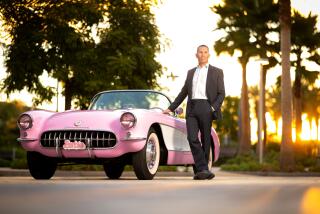Artist Can Toy With Barbie’s Image
- Share via
Maybe it’s time for Intellectual Property Law Barbie.
Mattel Inc. could use some help after losing another round Monday in its legal battle against artists who skewer the iconic doll in social commentary.
In the case, the U.S. 9th Circuit Court of Appeals affirmed a lower-court ruling that the El Segundo company had stepped over the line when it sued a Utah artist who photographed naked Barbie dolls stuffed into blenders, rolled up in enchiladas and speared on fondue forks.
The court ruled that the toy maker ought to pay the legal costs Tom Forsythe racked up defending his “Food Chain Barbie” artwork, a bill that is expected to exceed $2 million.
The copyright law’s “fair use” exception gives Forsythe the right to strip and contort the impossibly perfect doll for his art, the court said, so Mattel’s infringement claims could be viewed as unreasonable.
After all, the court reasoned, it’s not as if Mattel were going to bring out its own version of naked Barbie-in-a-blender. Forsythe’s “infringement had no discernible impact on Mattel’s market for derivative uses,” the court said. “The benefits to the public in allowing such use -- allowing artistic freedom and expression and criticism of a cultural icon -- are great.”
A Mattel spokeswoman did not return calls for comment.
The case is at least the third in two years in which a court has told Mattel that copyright laws are meant to hammer street vendors who sell knockoffs, not artists’ free expression.
Last year, a New York court ruled out a Mattel suit against an artist who sold Barbie-like “Dungeon Dolls” clad in sadomasochistic outfits. The U.S. Supreme Court this year refused to allow Mattel to press suit against MCA Records Inc. for a Danish band’s deriding the doll as a “blond bimbo” in its song “Barbie Girl.”
“There has been a disturbing trend with companies using a variety of copyright and trademark laws to suppress forms of speech they do not like in ways that stifle legitimate criticism,” said Peter Eliasburg, an American Civil Liberties Union lawyer in Los Angeles who represented Forsythe. “This sends a message that there is a risk involved in bringing these kinds of cases.”
More to Read
Inside the business of entertainment
The Wide Shot brings you news, analysis and insights on everything from streaming wars to production — and what it all means for the future.
You may occasionally receive promotional content from the Los Angeles Times.











